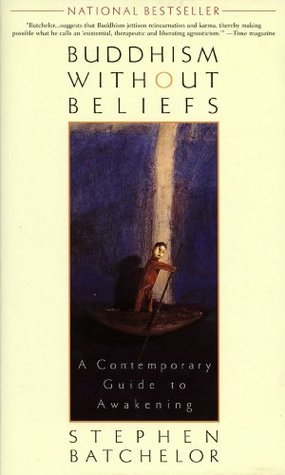More on this book
Community
Kindle Notes & Highlights
Read between
July 7 - July 9, 2019
One of the great realizations of the Enlightenment was that an atheistic materialist could be just as moral a person as a believer—even more so. This insight led to liberation from the constraints of ecclesiastical dogma, which was crucial in forming the sense of intellectual and political freedom we enjoy today.
Regardless of what we believe, our actions will reverberate beyond our deaths. Irrespective of our personal survival, the legacy of our thoughts, words, and deeds will continue through the impressions we leave behind in the lives of those we have influenced or touched in any way.
Agnosticism is no excuse for indecision. If anything, it is a catalyst for action; for in shifting concern away from a future life and back to the present, it demands an ethics of empathy rather than a metaphysics of fear and hope.
ANGUISH EMERGES FROM craving for life to be other than it is. In the face of a changing world, such craving seeks consolation in something permanent and reliable, in a self that is in control of things, in a God who is in charge of destiny. The irony of this strategy is that it turns out to be the cause of what it seeks to dispel. In yearning for anguish to be assuaged in such ways, we reinforce what creates anguish in the first place: the craving for life to be other than it is. We find ourselves spinning in a vicious circle. The more acute the anguish, the more we want to be rid of it, but
...more
Dharma practice is founded on resolve. This is not an emotional conversion, a devastating realization of the error of our ways, a desperate urge to be good, but an ongoing, heartfelt reflection on priorities, values, and purpose. We need to keep taking stock of our life in an unsentimental, uncompromising way.
I am compulsively distracted.
A world of contingency and change can offer only simulacra of perfection. When driven by craving, I am convinced that if only I were to achieve this goal, all would be well. While creating the illusion of a purposeful life, craving is really the loss of direction. It is a process of compulsive becoming. It spins me around in circles, covering the same ground again and again. Each time I think I have found a situation that solves all my problems, it suddenly turns out to be a reconfiguration of the very situation I thought I was escaping from. My sense of having found a new lease on life turns
...more
THE SAME IS true for each one of us. Just as a potter forms a pot on the wheel, so I configure my personality from the spinning clay of my existence. The pot does not exist in its own right: it emerges from the interactions of the potter, the wheel, the clay, its shape, its function (each of which in turn emerges from the interactions of its causes and components ad infinitum). There is no essential pot to which its attributes adhere—just as there is no essential daffodil to which stalk, leaves, petals, and stamen adhere. Pots and daffodils are configurations of causes, conditions, parts,
...more
I cannot find the self by pointing my finger at any physical or mental trait and saying: “Yes, that’s me.” For such traits come and go, whereas the sense of “I” remains constant. But neither can I put my finger on something other than these traits that—however ephemeral and contingent they may be—nonetheless define me. The self may not be something, but neither is it nothing. It is simply ungraspable, unfindable. I am who I am not because of an essential self hidden away in the core of my being but because of the unprecedented and unrepeatable matrix of conditions that have formed me. The more
...more


